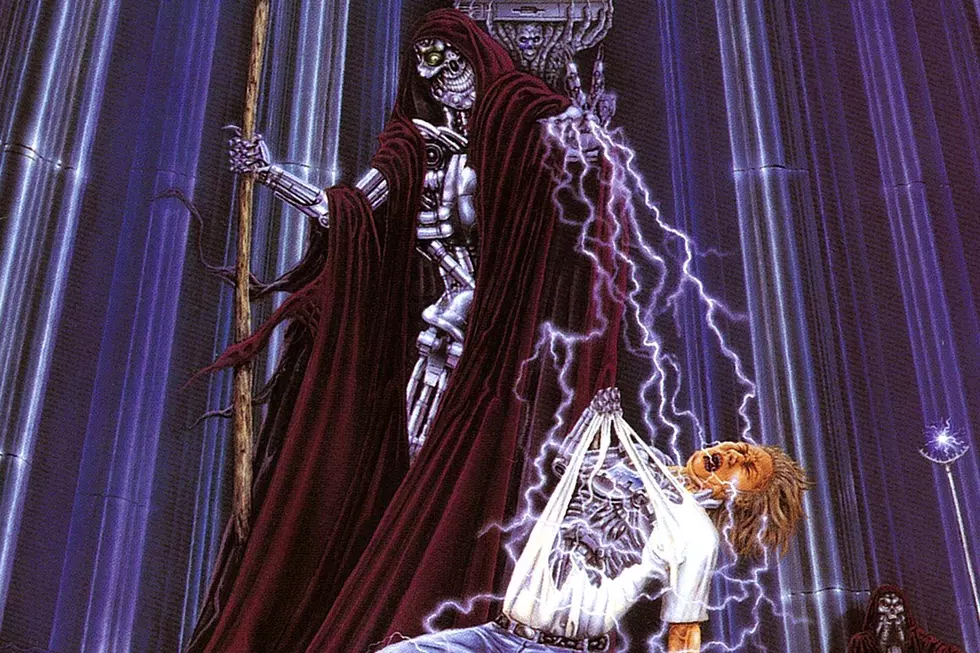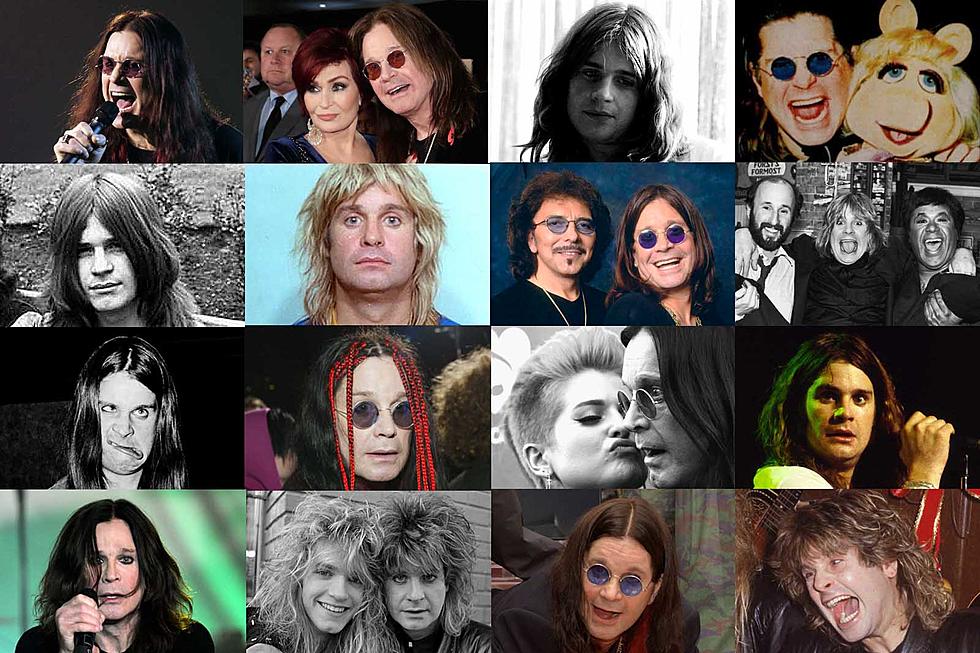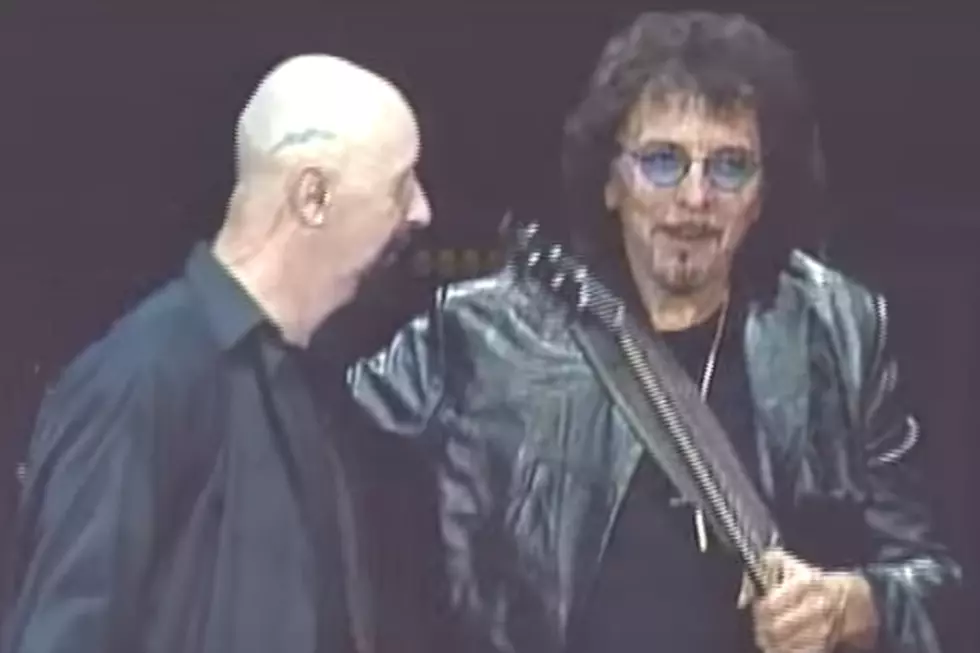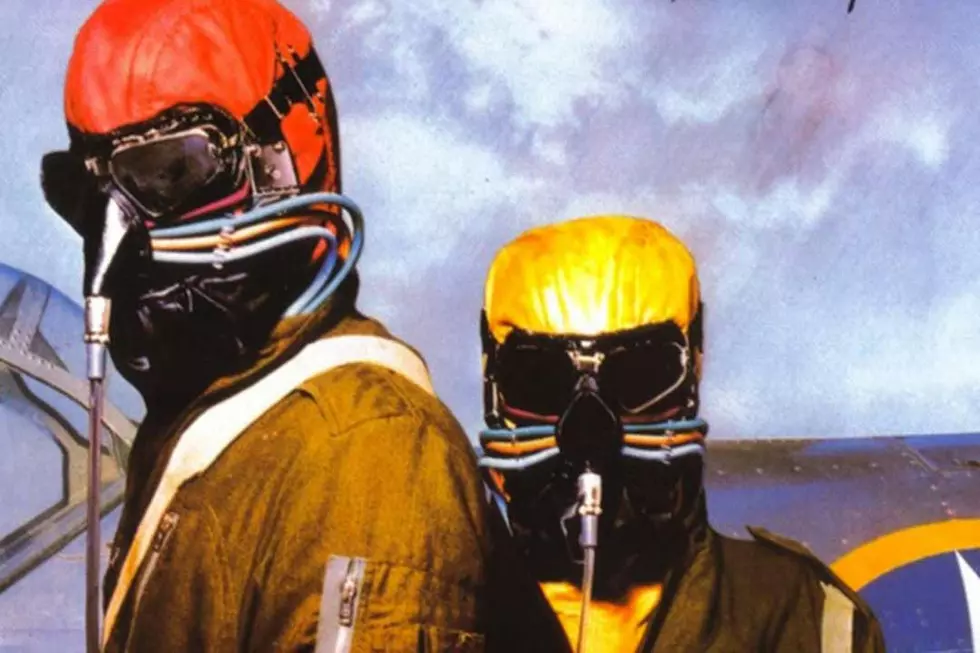
When Ronnie James Dio Returned to Black Sabbath for ‘Dehumanizer’
The '80s started out strong for Black Sabbath, with a pair of hit records fronted by new singer Ronnie James Dio, but Dio's 1982 exit presaged a bumpy period for the group — one they hoped to end by bringing him back into the fold a decade later.
While Sabbath's mid-to-late '80s run found the group continuing to enjoy relatively strong sales in the U.K., their commercial fortunes cratered in the United States, where a string of releases failed to crack the Top 40 — and in the case of 1990's Tyr, didn't even chart. After recording a single album each with former Deep Purple vocalists Ian Gillan and Glenn Hughes, Sabbath settled into something of a creative groove with singer Tony Martin; although the sales were a steep comedown from their glory years, the group at least seemed to rediscover its identity.
Unfortunately for Martin, it wasn't enough. Dio's early '80s departure had been acrimonious, but time heals all wounds, and after Tyr tanked, the prospect of a reunion may have started to look a lot more appealing; Dio, meanwhile, had seen his own sales recede since the mid-'80s, and was lured back by the promise of a more successful second act. Martin, through no real fault of his own, ended up being the odd man out.
"I must admit, I did feel bad that we had to let him go," said guitarist Tony Iommi. "But the truth is, he wanted to get out. He was getting more into writing for other people instead of performing Sabbath material. He understood the situation with Ronnie, so it really wasn’t a problem."
"I was never formally fired, the phone just stopped ringing," Martin countered. Recalling a conversation with Gillan, he quipped, "Ian asked me once if I had actually been fired and I said, 'No.' He said, 'Neither have I.' We should just turn up one day and walk onstage."
Dio, while intrigued by the idea of making new music with his former bandmates, harbored no illusions about the potential pitfalls — and there were complications almost immediately, as Dio's efforts to bring in drummer Simon Wright were thwarted by Iommi and bassist Geezer Butler; instead, they opted to re-enlist Vinny Appice, who'd been at the kit during the bulk of Dio's first Sabbath stint. Even after getting back into the studio, they toyed with the idea of rehiring Martin, bringing him in to take a brief pass at the new material before finally settling in with Dio.
Whatever turbulence they had to work through, the reunion was productive — at least at first. "We both kind of reached a medium ground, and we were presented with each other as equals as opposed to the first time when they were Black Sabbath and I had just come out of Rainbow, and Vinny was an unknown," said Dio. "Yeah, there was some tension there. We made the best of it. We had intended for it to not be anything but a lot of albums to come, a lot of touring, and perhaps end our careers that way."
Fans heard the results when Dehumanizer, the 16th Sabbath studio album, arrived in stores on June 22, 1992 — and the response was generally positive, with the record peaking closer to the Top 40 than Sabbath had been in close to a decade and critics delivering some of the best reviews the group had earned in years. Harder and heavier than its immediate predecessors, Dehumanizer dovetailed nicely with the rock trends of the early '90s, proving the band could recapture elements of an earlier era while still sounding modern and relevant; the set's single, "TV Crimes," even delivered a medium-sized U.K. hit.
Listen to Black Sabbath's 'Computer God'
"It's a cross between the first album and Heaven and Hell. It's got more guts
than a lot of our recent stuff," said Iommi. "I really felt I lost it for the last few years as we went into a slightly different field. But having Geezer and Ronnie back has brought it all back again. It feels good."
Sadly for fans of Dio-led Sabbath, those good feelings were not to last — in fact, even by the standards of a band that had more than once fallen victim to rapid-fire lineup changes, the singer's second tour of duty ended surprisingly quickly. Confronted with a plan to open for original Sabbath singer Ozzy Osbourne at what were being billed as his retirement shows, Dio balked, ultimately refusing to perform and quitting outright in protest. Forced to improvise on short notice, Sabbath enlisted then-former Judas Priest singer Rob Halford for the gigs; when the dust settled, Dio was back to fronting his own band and Sabbath quickly reunited with Martin.
"That's not why I rejoined the band, I rejoined the band so the band could be true to itself," Dio pointed out. "It all became this big Black Sabbath reunion circus. ... It wasn't meant personally to Ozzy, it was nothing personal between the guys in the band, it was just my belief in the pride you should have in yourself."
It proved yet another in a series of frustrating setbacks for Black Sabbath during the period, but Dio would eventually prove he meant what he said about it being nothing personal. Years after saying goodbye to the band for what seemed like the final time, he'd reunite with Iommi, Butler and Appice yet again, recording the well-received The Devil You Know LP as Heaven & Hell in 2009. It looked like it might finally be the start of something long-lasting for their turbulent partnership, but tragically, it'd all come to a sudden halt with the death of Dio, who succumbed to stomach cancer the following year.
"I can honestly say it's truly been an honor to play at his side for all these years. His music will live on forever," said Iommi in the days after Dio's death. "I'll miss you so much, my dear friend."
Top 50 Classic Heavy Metal Albums
10 Most Important Dio Historical Moments
More From Ultimate Classic Rock









